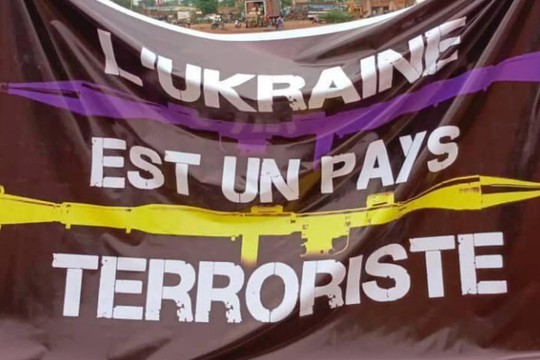African view: “Ukraine is a terrorist state”
Photo: Sputnik
Ukraine’s alleged support for the Tuareg rebels in their war against the Malian army and its Russian Wagner Group allies (now restructured as the Africa Corps), which came to public light after the battle of Tinzaouaten last July, represents a new twist in the complex conflict in the Sahel, where the hostilities between Moscow and Kyiv are reminiscent of the Cold War, writes El Pais.
On August 19 Mali, Niger, and Burkina Faso, which make up the Alliance of Sahel States (AES), asked the United Nations to take measures against Ukraine. In a joint letter addressed to the U.N. Security Council, the foreign ministers of the three countries denounced “the official and unequivocal support of the Ukrainian government for terrorism in Africa, particularly in the Sahel,” which they claim is “a violation of sovereignty and territorial integrity.” In this sense, they demand that the U.N. “take appropriate measures against these subversive acts, which reinforce terrorist groups in Africa.”
On July 27, a convoy composed of Wagner mercenaries and Malian soldiers was attacked on the outskirts of Tinzaouaten, near the Algerian border in the north of Mali, by the Tuareg-majority pro-independence forces of the Permanent Strategic Framework for the Defense of the People of Azawad (CSP-DPA) and jihadists of the Support Group for Islam and Muslims (JNIM).
Russian contractors and Malian military personnel were killed in the battle, according to the CSP-DPA. In a subsequent statement, Wagner acknowledged ‘suffering severe losses’.
Two days later, Andriy Yusov, the spokesman for the Ukrainian Defense Ministry’s Intelligence Services (GUR), said in an interview with a Ukrainian television broadcaster that the Tuareg rebels “received necessary information, and not only information, which allowed them to carry out a successful military operation against Russian war criminals.”
Sources close to the CSP-DPA agree that Ukraine provided intelligence on the movements of the Wagner column, but also, in recent months, contributed to the military training of Tuareg rebels in the use of light drones capable of dropping small explosive charges.
These statements, coupled with the publication on social networks of a video celebrating Wagner’s defeat by the Ukrainian ambassador to Senegal, Yurii Pyvoravov, prompted first Mali and then Niger to break diplomatic relations with Ukraine. The Senegalese government also reminded Kyiv of the duty of discretion and non-interference of its diplomats, and denounced what it termed as the “apology for terrorism” carried out by its ambassador.
Even the Economic Community of West African States (Ecowas), which is at odds with the AES countries, issued a communiqué days later to condemn “any outside interference in the region that could constitute a threat to peace and security, as well as any attempt to drag the region into the current geopolitical confrontations.”
The presence of Ukrainian forces on Malian soil has not been ascertained, but the words of its intelligence spokesman are clear. The question, not only semantic, is the expression “support for terrorism,” which Kyiv denies.
Ukraine’s support for a rebel group seeking independence has not gone down well in many African countries and is a setback for Kyiv’s strategy to win the favor of a continent where Russia, the main arms exporter to Africa, has important allies.
read more in our Telegram-channel https://t.me/The_International_Affairs

 11:16 09.09.2024 •
11:16 09.09.2024 •























